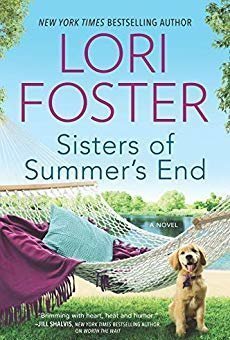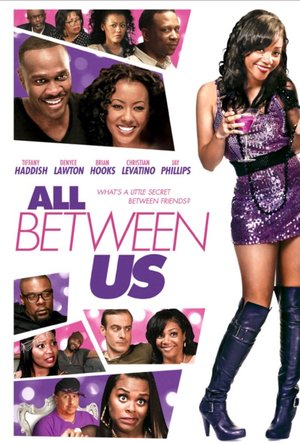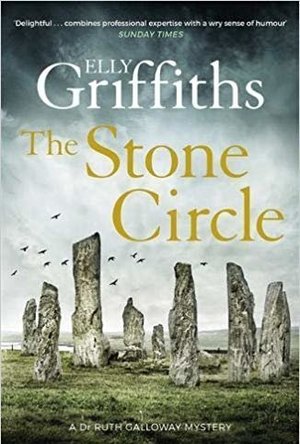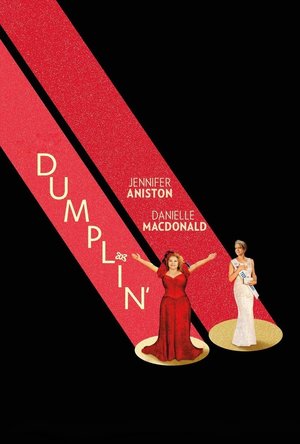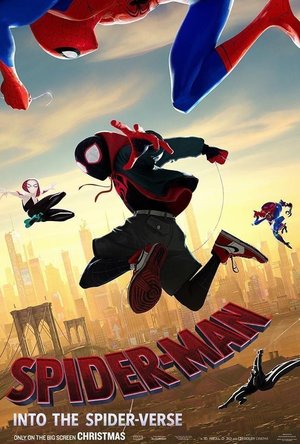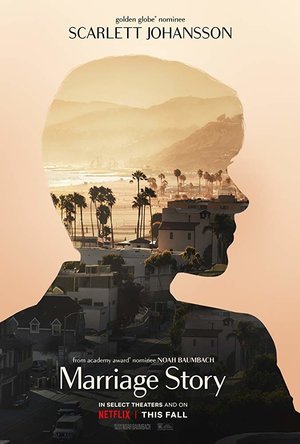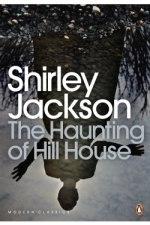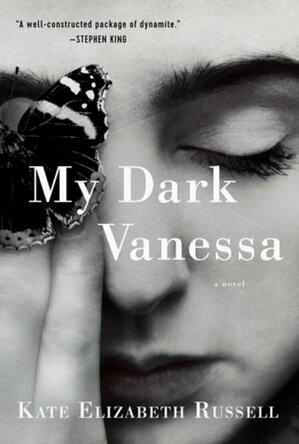Search
Search results
Carma (21 KP) rated Sisters of Summer's End (Summer Resort #2) in Books
Jun 17, 2019
I was wondering where the sisters would come in to play at Coopers Charm RV park since after reading the first book, Coopers Charm, and knowing there was only one set of sisters residing at the park and they had their story line in the first book. After finishing this book I realized sisters dont have to be defined by blood only. The best kind of family is the ones we pick for ourselves.
Joy has had a single focus in life since she became a mother to Jack. Once her family disowned her, she set out to make a life for her and her baby and almost 6 years later she has found her stride. Living and working at Coopers Charm has been a dream come true, having taken pity on her pregnant self and hiring her on the spot while providing an apartment, Cooper saved her life and soul. These people are her family now and she hasnt looked back.
Royce has looked to make a change in his life since his mother passed away. Buying the old drive in seemed like the perfect way to escape all of lifes hardships and taking care of himself unencumbered. He never counted on Joy or Jack working their way into not only his life but also his heart.
Secondary in this novel is the story of Maris and Daron. We met both these characters, and got a hint of their flirtation/denial in Coopers Charm. Maris is a fiercely independent woman who wants nothing to do with playboy Daron. Or at least that is what she keeps telling herself and anyone that asks. Her body may argue that point with her mind. Daron has pursued Maris for years, knowing deep in his soul that she is the one for him above anyone else. Having her refuse his advances all these years has just made him want her more. When she finally decides it is ok to act on her feelings and still be the independent woman she desires to be, she jumps all in with Daron.
Joy, Royce, Daron and Maris have a romantic fall season at Coopers Charm RV park. They navigate the newness of relationships while trying to maintain so type of normalcy with the lives theyve come to appreciate. When Joys mother makes an unexpected appearance in her life again, Joy needs to reevaluated and make choices that will affect her future as well as Jacks.
Once again I am taken to a fictional place with wonderful characters that make me want to search them out in real life. The people of Coopers Charm RV resort come together to form stronger bonds than most families will ever experience in their lifetime. 5 out of 5 stars for this wonderful story of friendship, sisterhood and family that I read and reviewed in advance without any expectations. Im hoping to return to Coopers Charm sooner rather than later, to catch up with these friends who have formed lifelong bonds.
Joy has had a single focus in life since she became a mother to Jack. Once her family disowned her, she set out to make a life for her and her baby and almost 6 years later she has found her stride. Living and working at Coopers Charm has been a dream come true, having taken pity on her pregnant self and hiring her on the spot while providing an apartment, Cooper saved her life and soul. These people are her family now and she hasnt looked back.
Royce has looked to make a change in his life since his mother passed away. Buying the old drive in seemed like the perfect way to escape all of lifes hardships and taking care of himself unencumbered. He never counted on Joy or Jack working their way into not only his life but also his heart.
Secondary in this novel is the story of Maris and Daron. We met both these characters, and got a hint of their flirtation/denial in Coopers Charm. Maris is a fiercely independent woman who wants nothing to do with playboy Daron. Or at least that is what she keeps telling herself and anyone that asks. Her body may argue that point with her mind. Daron has pursued Maris for years, knowing deep in his soul that she is the one for him above anyone else. Having her refuse his advances all these years has just made him want her more. When she finally decides it is ok to act on her feelings and still be the independent woman she desires to be, she jumps all in with Daron.
Joy, Royce, Daron and Maris have a romantic fall season at Coopers Charm RV park. They navigate the newness of relationships while trying to maintain so type of normalcy with the lives theyve come to appreciate. When Joys mother makes an unexpected appearance in her life again, Joy needs to reevaluated and make choices that will affect her future as well as Jacks.
Once again I am taken to a fictional place with wonderful characters that make me want to search them out in real life. The people of Coopers Charm RV resort come together to form stronger bonds than most families will ever experience in their lifetime. 5 out of 5 stars for this wonderful story of friendship, sisterhood and family that I read and reviewed in advance without any expectations. Im hoping to return to Coopers Charm sooner rather than later, to catch up with these friends who have formed lifelong bonds.
Darren (1599 KP) rated All Between Us (2018) in Movies
Jun 20, 2019
Story: All Between Us starts as engaged couple Clara (Lawton) and Ray (Hooks) are hosting a diner party for family and friends to make their big announcement. Clara’s parents will be meeting Ray for the first time and Clara’s best friend Mishawn (Haddish) has started to settle down with Ty (Levatino).
As the night unfolds secrets have been coming out and now the mistakes of the past will come to life and will need to be worked through for the happiness of the people involved.
Thoughts on All Between Us
Characters – Clara is one of the hosts for the party, it is her family that will be attending the party with her big announcement, she must bring out the best in Ray for the first-time meeting, knowing her love can make him stronger. Ray is the fiancée of Clara a writer for profession that is nervous to meet his future parents-in-law knowing they are judgemental and already don’t approve of him. He spends the night getting verbal abuses from the family. Mishawn is Clara’s best friend, the one that knows the news she wants to tell and has turned her party ways into a more stable relationship with Ty. We have plenty of other characters are this party with Clara’s loud brother who has always been against most people and her judgemental father that spends the night putting Ray down. They all work for different moments in the film.
Performances – This is a great ensembled cast giving us strong performances throughout, the biggest known star is Tiffany Haddish after last years ‘Girls Trip’ who only gives us glimpses of the pure energy she bought to that film, she must take the back burner at times in this film. Denyce Lawton and Brian Hooks are great too, while Esau McGraw gives us a character we grow to dislike early.
Story – The story brings friends and family together for a couple’s announcement, with the whole story taking place over this one evening. This does give us a real-time feel with the story and the secrets coming out push relationships to limits. The story does keep things simple and each character does fit into a group even being individual enough. This is a story that could easily be a play too which is something I like to point out with this style of storytelling.
Comedy – The comedy in the film does work for the most part, the funniest moments do hit well, it is the small jokes that can sometimes miss. Freddy does get the most laughs, mostly for the wrong reasons because of his characters race related opinions.
Settings – The film takes place in one location, the apartment which plays out well because this is the only place we need to be for the events unfolding.
Scene of the Movie – Standing up to Mr Tillman.
That Moment That Annoyed Me – The over use of the N-word.
Final Thoughts – This is a wonderful ensembled cast performance, the solo night gives us the laughs we need and the truths show us how lives can be hiding something from everyone.
Overall: Enjoyable comedy.
https://moviesreview101.com/2018/05/14/all-between-us-2018/
As the night unfolds secrets have been coming out and now the mistakes of the past will come to life and will need to be worked through for the happiness of the people involved.
Thoughts on All Between Us
Characters – Clara is one of the hosts for the party, it is her family that will be attending the party with her big announcement, she must bring out the best in Ray for the first-time meeting, knowing her love can make him stronger. Ray is the fiancée of Clara a writer for profession that is nervous to meet his future parents-in-law knowing they are judgemental and already don’t approve of him. He spends the night getting verbal abuses from the family. Mishawn is Clara’s best friend, the one that knows the news she wants to tell and has turned her party ways into a more stable relationship with Ty. We have plenty of other characters are this party with Clara’s loud brother who has always been against most people and her judgemental father that spends the night putting Ray down. They all work for different moments in the film.
Performances – This is a great ensembled cast giving us strong performances throughout, the biggest known star is Tiffany Haddish after last years ‘Girls Trip’ who only gives us glimpses of the pure energy she bought to that film, she must take the back burner at times in this film. Denyce Lawton and Brian Hooks are great too, while Esau McGraw gives us a character we grow to dislike early.
Story – The story brings friends and family together for a couple’s announcement, with the whole story taking place over this one evening. This does give us a real-time feel with the story and the secrets coming out push relationships to limits. The story does keep things simple and each character does fit into a group even being individual enough. This is a story that could easily be a play too which is something I like to point out with this style of storytelling.
Comedy – The comedy in the film does work for the most part, the funniest moments do hit well, it is the small jokes that can sometimes miss. Freddy does get the most laughs, mostly for the wrong reasons because of his characters race related opinions.
Settings – The film takes place in one location, the apartment which plays out well because this is the only place we need to be for the events unfolding.
Scene of the Movie – Standing up to Mr Tillman.
That Moment That Annoyed Me – The over use of the N-word.
Final Thoughts – This is a wonderful ensembled cast performance, the solo night gives us the laughs we need and the truths show us how lives can be hiding something from everyone.
Overall: Enjoyable comedy.
https://moviesreview101.com/2018/05/14/all-between-us-2018/
Hazel (1853 KP) rated The Deviants in Books
Dec 14, 2018
<i>This ARC was provided by the publisher via NetGalley in exchange for an honest review
The Deviants</i> by British author C. J. Skuse is an addictive, shocking young adult thriller about friendship, secrets and revenge. Set in a seaside town in the South West of England five friends are reunited through getting revenge on people causing difficulties in their lives. However some people are holding back secrets from the others, ones that cause more problems than not revealing them protects.
Ella has been with her boyfriend Max for five years but cracks are beginning to show in their relationship. Max is desperate to take their relationship to the next level, however Ella seems reluctant, if not scared, to do so. It is clear that something happened in Ella’s past that she refuses to acknowledge, relying on brutal training for the Commonwealth Games as a way of releasing her feelings. When circumstances cause Ella and Max to reconnect with schoolmates Fallon and Corey, Ella is quick to plot revenge on the people antagonizing them, using this as a new method of dealing with her past.
Through interactions with other characters, readers piece together the secret Ella has buried inside herself. By withholding these horrible experiences from everyone, Ella is slowly destroying herself. She believes she is protecting the people she loves, but is soon to realize that she is causing others to jump to dangerous conclusions.
Ella tells the story as if she is looking back on what has happened during the summer break from school. It is evident that she is opening up to an anonymous person, whom readers may initially presume to be a therapist. It is not until the shocking, heart-breaking conclusion that we eventually learn this character’s identity.
From the beginning it is not clear what the storyline of <i>The Deviants</i> is. For a very long time it is impossible to guess where the author is going with the narrative, however that does not stop it from being enjoyable. Ella’s account is occasionally amusing with realistic situations teenagers may find themselves in, although perhaps not all in one friendship circle: romantic relationships, pregnancy, exams, bullying, physical disability, homosexuality… As a result of the wishy-washy plot line, the ending is all the more shocking.
It is easy to relate to all of the main characters – although not necessarily like them all. Each represents a different set of feelings and personalities that all young adult readers will be familiar with, thus <i>The Deviants</i> is a book everyone can relate to.
I honestly did not know what to expect when I began this novel, however I easily got into the narrative and enjoyed reading about Ella and her friends. There are a few topics that are difficult to read about, so some readers may feel uncomfortable especially if they have ever been <b>*SPOILER*</b> abused. <i>The Deviants</i> is a book that fans of contemporary young adult readers should enjoy, and has the potential to become quite popular.
The Deviants</i> by British author C. J. Skuse is an addictive, shocking young adult thriller about friendship, secrets and revenge. Set in a seaside town in the South West of England five friends are reunited through getting revenge on people causing difficulties in their lives. However some people are holding back secrets from the others, ones that cause more problems than not revealing them protects.
Ella has been with her boyfriend Max for five years but cracks are beginning to show in their relationship. Max is desperate to take their relationship to the next level, however Ella seems reluctant, if not scared, to do so. It is clear that something happened in Ella’s past that she refuses to acknowledge, relying on brutal training for the Commonwealth Games as a way of releasing her feelings. When circumstances cause Ella and Max to reconnect with schoolmates Fallon and Corey, Ella is quick to plot revenge on the people antagonizing them, using this as a new method of dealing with her past.
Through interactions with other characters, readers piece together the secret Ella has buried inside herself. By withholding these horrible experiences from everyone, Ella is slowly destroying herself. She believes she is protecting the people she loves, but is soon to realize that she is causing others to jump to dangerous conclusions.
Ella tells the story as if she is looking back on what has happened during the summer break from school. It is evident that she is opening up to an anonymous person, whom readers may initially presume to be a therapist. It is not until the shocking, heart-breaking conclusion that we eventually learn this character’s identity.
From the beginning it is not clear what the storyline of <i>The Deviants</i> is. For a very long time it is impossible to guess where the author is going with the narrative, however that does not stop it from being enjoyable. Ella’s account is occasionally amusing with realistic situations teenagers may find themselves in, although perhaps not all in one friendship circle: romantic relationships, pregnancy, exams, bullying, physical disability, homosexuality… As a result of the wishy-washy plot line, the ending is all the more shocking.
It is easy to relate to all of the main characters – although not necessarily like them all. Each represents a different set of feelings and personalities that all young adult readers will be familiar with, thus <i>The Deviants</i> is a book everyone can relate to.
I honestly did not know what to expect when I began this novel, however I easily got into the narrative and enjoyed reading about Ella and her friends. There are a few topics that are difficult to read about, so some readers may feel uncomfortable especially if they have ever been <b>*SPOILER*</b> abused. <i>The Deviants</i> is a book that fans of contemporary young adult readers should enjoy, and has the potential to become quite popular.
Kristy H (1252 KP) rated The Stone Circle (Ruth Galloway, #11) in Books
Jun 21, 2019
When DCI Nelson receives the letter, he's immediately transported back to twenty years ago, when young Lucy Downey went missing and the first letters began. Then, to ten years later, when they found the bones in the Saltmarsh. It was then that Ruth first came in to Nelson's life, when she was called to examine the bones. While the bones weren't related to Lucy, she also took a look at the letters. And, of course, became entwined in Nelson's life. During that time, another child died, and the killer drowned on the marshes. The letter writer, Erik Anderssen, Ruth's mentor, also died that night too. Now, Ruth is assisting with a new dig in the Saltmarsh in a stone circle--one with ties to Erik. While digging, they find recent bones believed to belong to Margaret Lacey, who went missing in 1981 at the age of twelve. As the the investigation into Margaret's case begins, it looks like it has ties to Nelson's earlier cases--the letters, the bones, the missing kids, and more. But that killer is dead--right?
"'He's back,' says Clough. 'Bollocks,' says Nelson. 'He's dead.'"
The wonderful Elly Griffiths brings us back to her first Ruth Galloway book, The Crossing Places in this, her eleventh Ruth story. Yet, the tale feels as fresh and intriguing as ever. I just love the Ruth Galloway series--the tone of these books is unlike almost any other. Ruth seems real to me by now, like an old friend, and don't even get me started on Nelson, our beloved, sarcastic, DCI. Griffiths has an amazing ability to characterize Ruth and Nelson (and the whole crew) and capture their own distinct voices. Her books are at turns funny, familiar, and sometimes heartbreaking as Ruth and Nelson try to navigate their own relationship--and the other relationships that may or may not keep them apart. Michelle, Nelson's wife, has her baby in this one (cliffhanger resolved), and there is progress made on other personal fronts as well.
It almost seems like icing on the cake that we are treated to an enjoyable mystery along with our lovely characters and just overall familiarity. I found the case in this one to be engrossing, especially with the ties back to the earlier book. (I highly recommend reading this series from the beginning--it's the best way to catch all the little nuances and bits of humor, but the book will stand alone.) Margaret's disappearance is interesting--and her story brings a whole new cast of characters, several of whom entwine with our usual suspects.
All in all, as always, another winner from Griffiths. I could read her books constantly, and I love Ruth and Nelson (and Kate, Ruth's seven-year-old) so dearly! They truly seem real to me. If you've been reading this series from book #1, you'll enjoy the usual humor (oh Nelson) and returning to our cast of characters. If you like a good mystery (with some archaeological flavor sprinkled in), you won't be disappointed either. 4.5 stars.
"'He's back,' says Clough. 'Bollocks,' says Nelson. 'He's dead.'"
The wonderful Elly Griffiths brings us back to her first Ruth Galloway book, The Crossing Places in this, her eleventh Ruth story. Yet, the tale feels as fresh and intriguing as ever. I just love the Ruth Galloway series--the tone of these books is unlike almost any other. Ruth seems real to me by now, like an old friend, and don't even get me started on Nelson, our beloved, sarcastic, DCI. Griffiths has an amazing ability to characterize Ruth and Nelson (and the whole crew) and capture their own distinct voices. Her books are at turns funny, familiar, and sometimes heartbreaking as Ruth and Nelson try to navigate their own relationship--and the other relationships that may or may not keep them apart. Michelle, Nelson's wife, has her baby in this one (cliffhanger resolved), and there is progress made on other personal fronts as well.
It almost seems like icing on the cake that we are treated to an enjoyable mystery along with our lovely characters and just overall familiarity. I found the case in this one to be engrossing, especially with the ties back to the earlier book. (I highly recommend reading this series from the beginning--it's the best way to catch all the little nuances and bits of humor, but the book will stand alone.) Margaret's disappearance is interesting--and her story brings a whole new cast of characters, several of whom entwine with our usual suspects.
All in all, as always, another winner from Griffiths. I could read her books constantly, and I love Ruth and Nelson (and Kate, Ruth's seven-year-old) so dearly! They truly seem real to me. If you've been reading this series from book #1, you'll enjoy the usual humor (oh Nelson) and returning to our cast of characters. If you like a good mystery (with some archaeological flavor sprinkled in), you won't be disappointed either. 4.5 stars.
Phillip McSween (751 KP) rated Dumplin' (2018) in Movies
Jan 16, 2019
Good On So Many Levels
High school student Willowdean (Danielle MacDonald) decides to enter a beauty pageant to spite her mom Rosie (Jennifer Aniston), a former pageant queen.
Acting: 10
Beginning: 10
Characters: 10
The characters in this story are not just unique and enjoyable. They also represent the melting pot of what this world should be. Willowdean feels out of place because she is heavyset so she tries to attack herself before others do. Her Aunt Lucy (Hilliary Begley) tried to teach her to do the opposite before she passed away, but Willowdean didn’t grasp her aunt’s confidence unfortunately. Through her journey of pageant life, she makes two good friends: Hannah (Bex Taylor-Klaus) who is anti-establishment (or anti-everything, rather) and Millie (Maddie Baillio) a ball of happiness with an overprotective mom. They are at the core of a slew of good characters that brighten the story. And did I mention the drag queens? Phe-no-men-al.
Cinematography/Visuals: 10
Conflict: 10
The conflict here is less about outward confrontation and more about inner discovery. Willowdean’s greatest enemy is herself, something most of us can probably relate to. It is refreshing to watching her battle old demons while coming to terms with who she is and who she can be. Destroying yourself is toxic and Dumplin’ shows how a negative view of one’s self can damage and destroy the relationships around us.
Genre: 10
Memorability: 8
The story as a whole has a magical feeling to it that’s centered in realism, almost like a trailer park Cinderella. I thought of all the 201 movies I watched in 2018. Few touched me quite like this one. A really memorable movie can make you laugh, maybe cry a little, and reflect. Dumplin’ gets the job done. It teaches you never to underestimate yourself and to go all out even when you don’t think you have a shot.
Pace: 10
I love when storytelling is consistent and blends seamlessly from one scene to the next. You get that here. There’s not a whole lot of pointless dialogue that takes you nowhere or random scenes that forces relationship-building. It moves consistently like a batch of waves. Before you know it, it’s over and you’ve had a great ride.
Plot: 10
The story isn’t just original but heartfelt. Something we can all get behind. I can honestly say that I’ve never seen anything like it. You can see the ending coming a mile away, but you’re having so much of a good time you don’t care!
Resolution: 10
Just as with the plot, you definitely see the ending coming a mile away. Doesn’t make it any less awesome or touching. Mum’s the word, but it ties on a nice little bow on the movie as a whole.
Overall: 98
I’m always wary of Netflix originals. Not because they can’t be good, I’ve seen plenty of amazing things on Netflix. Rather I understand that there’s a pressure for them to keep putting out original content at a fast pace because the market is catching up. This could mean more swings-and-misses. Dumplin’ is not a casualty of that in the least. Quality movie.
Acting: 10
Beginning: 10
Characters: 10
The characters in this story are not just unique and enjoyable. They also represent the melting pot of what this world should be. Willowdean feels out of place because she is heavyset so she tries to attack herself before others do. Her Aunt Lucy (Hilliary Begley) tried to teach her to do the opposite before she passed away, but Willowdean didn’t grasp her aunt’s confidence unfortunately. Through her journey of pageant life, she makes two good friends: Hannah (Bex Taylor-Klaus) who is anti-establishment (or anti-everything, rather) and Millie (Maddie Baillio) a ball of happiness with an overprotective mom. They are at the core of a slew of good characters that brighten the story. And did I mention the drag queens? Phe-no-men-al.
Cinematography/Visuals: 10
Conflict: 10
The conflict here is less about outward confrontation and more about inner discovery. Willowdean’s greatest enemy is herself, something most of us can probably relate to. It is refreshing to watching her battle old demons while coming to terms with who she is and who she can be. Destroying yourself is toxic and Dumplin’ shows how a negative view of one’s self can damage and destroy the relationships around us.
Genre: 10
Memorability: 8
The story as a whole has a magical feeling to it that’s centered in realism, almost like a trailer park Cinderella. I thought of all the 201 movies I watched in 2018. Few touched me quite like this one. A really memorable movie can make you laugh, maybe cry a little, and reflect. Dumplin’ gets the job done. It teaches you never to underestimate yourself and to go all out even when you don’t think you have a shot.
Pace: 10
I love when storytelling is consistent and blends seamlessly from one scene to the next. You get that here. There’s not a whole lot of pointless dialogue that takes you nowhere or random scenes that forces relationship-building. It moves consistently like a batch of waves. Before you know it, it’s over and you’ve had a great ride.
Plot: 10
The story isn’t just original but heartfelt. Something we can all get behind. I can honestly say that I’ve never seen anything like it. You can see the ending coming a mile away, but you’re having so much of a good time you don’t care!
Resolution: 10
Just as with the plot, you definitely see the ending coming a mile away. Doesn’t make it any less awesome or touching. Mum’s the word, but it ties on a nice little bow on the movie as a whole.
Overall: 98
I’m always wary of Netflix originals. Not because they can’t be good, I’ve seen plenty of amazing things on Netflix. Rather I understand that there’s a pressure for them to keep putting out original content at a fast pace because the market is catching up. This could mean more swings-and-misses. Dumplin’ is not a casualty of that in the least. Quality movie.
Natalia (73 KP) rated Spider-Man: Into the Spider-Verse (2018) in Movies
Dec 19, 2018
Character Development (5 more)
Story
Art Direction
Soundtrack + Effects
Comedy, Action and Emotions
True to the Source
I've just recently come home from the cinema, and I can gladly say this was an amazing film. I may be looking at it through rose-coloured glasses, with how excited I was when we got the first trailer, but I can say with all sincerity that this film made me laugh, cry and blew away my expectations.
The film crosses over some iconic and some more obscure Spider-Man universes and manages to do it in a unique and palatable way. Each iteration of Spider-Man has a specific animation/art style, along with a specific soundtrack and extremely talented voice actors (or at least actors whose voices were made for the role: this meaning John Mulaney). Seeing all of this creative work come together in one film truly is an experience that I don't want people to miss out on.
A key part I really want to go into more is the use of colour and focus. It visuals of the film are vivid and attune to the tone of what scene is playing out. You can see how saturation and the palettes themselves are used the highlight characters or actions and are especially useful with emotional scenes. These emotions though are presented more with the composition which is consistently used to call back previous scenes in a subtle way that I absolutely adore.
The characters are very much real, most specifically in Miles and his family relationships. We see a real family dynamic that works - if I could point out a scene from a few trailers as an example, when Miles' father takes him to school and asks for him to say 'I love you' back really shows this realistic family that you could picture actually existing in the real world. The lack of a really existing romantic subplot is also something I love - the focus is on coming to terms with the fact that Miles isn't alone, that no one is. Without this romance, the film is just as good as any other, possibly even better with the fact that our potential romantic interest actually doesn't turn out to be.
The next thing that is certainly huge for any die-hard Marvel fans is the fact that it's very much true to the comic books. In the way its told, the way it's presented, and the actual story, the characters are all recognizable both by appearance and by their personalities/behaviours.
The only negative I can find for the film isn't even part of the film itself: Though the cinema gave warning for epilepsy, the film itself does not. While I'm sure theatres are required to give warning, it may be a good idea to give an on-screen warning, especially when the opening logo itself could easily trigger epilepsy.
Overall, I wish I could go back and watch it over and over, so I think most people will enjoy this film, no matter what their knowledge of the MCU is. An engaging story told in a creative way and with an incredibly hilarious after credits scene - worth a watch from everyone.
The film crosses over some iconic and some more obscure Spider-Man universes and manages to do it in a unique and palatable way. Each iteration of Spider-Man has a specific animation/art style, along with a specific soundtrack and extremely talented voice actors (or at least actors whose voices were made for the role: this meaning John Mulaney). Seeing all of this creative work come together in one film truly is an experience that I don't want people to miss out on.
A key part I really want to go into more is the use of colour and focus. It visuals of the film are vivid and attune to the tone of what scene is playing out. You can see how saturation and the palettes themselves are used the highlight characters or actions and are especially useful with emotional scenes. These emotions though are presented more with the composition which is consistently used to call back previous scenes in a subtle way that I absolutely adore.
The characters are very much real, most specifically in Miles and his family relationships. We see a real family dynamic that works - if I could point out a scene from a few trailers as an example, when Miles' father takes him to school and asks for him to say 'I love you' back really shows this realistic family that you could picture actually existing in the real world. The lack of a really existing romantic subplot is also something I love - the focus is on coming to terms with the fact that Miles isn't alone, that no one is. Without this romance, the film is just as good as any other, possibly even better with the fact that our potential romantic interest actually doesn't turn out to be.
The next thing that is certainly huge for any die-hard Marvel fans is the fact that it's very much true to the comic books. In the way its told, the way it's presented, and the actual story, the characters are all recognizable both by appearance and by their personalities/behaviours.
The only negative I can find for the film isn't even part of the film itself: Though the cinema gave warning for epilepsy, the film itself does not. While I'm sure theatres are required to give warning, it may be a good idea to give an on-screen warning, especially when the opening logo itself could easily trigger epilepsy.
Overall, I wish I could go back and watch it over and over, so I think most people will enjoy this film, no matter what their knowledge of the MCU is. An engaging story told in a creative way and with an incredibly hilarious after credits scene - worth a watch from everyone.
Lucy Buglass (45 KP) rated Marriage Story (2019) in Movies
Nov 7, 2019
Divorce has been depicted many times onscreen, as it’s one of those difficult realities about adult relationships. There’s still a lot of stigma around the breakdown of a marriage, but Marriage Story deals with the topic in a very raw and unique way.
The film follows Nicole (Scarlett Johansson) and Charlie (Adam Driver) as they’re going through the turbulent divorce period. The couple share a young son Henry, who naturally causes complications for the two when it comes to custodial agreements.
Marriage Story opens with two gorgeous monologues about what the two characters love about each other, both of which are enough to make you cry a mere few minutes into the film. This contrasts very well with the present day, where they’re both struggling to make their marriage work.
It would have been very easy for Noah Baumbach to encourage the audience to pick sides, leaving them to subconsciously ‘root’ for either party to do well in the scenario. But remarkably that’s not the case, as it’s a very unbiased film that lays everything out on the table for us to see. Each messy, complicated detail is shown to us, and we end up sympathising with both.
One thing I really enjoyed about Marriage Story is the way Baumbach criticises some of the ridiculousness associated with divorce, especially when it comes to legal battles. Nicole reluctantly turns to ruthless lawyer Nora Fanshaw (Laura Dern), who is honest about the lies that have to be told in order to get through this.
Dern’s performance is hilarious but also highlights some of the inequalities and utterly baffling scenarios that happen when picking up a legal case. I wasn’t aware of any of them so it was quite a shock.
Watching the film is excruciating in places, but that’s a compliment on how raw and honest it is. It seems wrong for Charlie and Nicole to have to say and do certain things, all dictated by their respective lawyers. A clean break just isn’t possible when a child is involved.
It becomes even more complicated for the couple when Nicole decides to move back to Los Angeles, 2,789 miles away from New York City where she and Charlie used to reside. This creates a very literal distance between them, and causes problems with the battle for custody and Henry’s wellbeing.
Whilst there are many scenes which will reduce you to tears, Marriage Story has some comedic elements to lighten the mood, especially when it comes to Nicole’s family and how they react to the news of the divorce.
The two central performances in Marriage Story really are exceptional, and you become invested in the lives of people you don’t even know. One dramatic scene between Charlie and Nicole in particular had me openly sobbing, as it was full of contempt instead of love. Many of us can react to that exchange in a failing relationship, and it hurts.
If you want a very honest look at what it’s like to go through a divorce, then Marriage Story is just that. This isn’t the kind of film that sugarcoats anything and instead takes its audience on an emotional rollercoaster from start to finish.
The film follows Nicole (Scarlett Johansson) and Charlie (Adam Driver) as they’re going through the turbulent divorce period. The couple share a young son Henry, who naturally causes complications for the two when it comes to custodial agreements.
Marriage Story opens with two gorgeous monologues about what the two characters love about each other, both of which are enough to make you cry a mere few minutes into the film. This contrasts very well with the present day, where they’re both struggling to make their marriage work.
It would have been very easy for Noah Baumbach to encourage the audience to pick sides, leaving them to subconsciously ‘root’ for either party to do well in the scenario. But remarkably that’s not the case, as it’s a very unbiased film that lays everything out on the table for us to see. Each messy, complicated detail is shown to us, and we end up sympathising with both.
One thing I really enjoyed about Marriage Story is the way Baumbach criticises some of the ridiculousness associated with divorce, especially when it comes to legal battles. Nicole reluctantly turns to ruthless lawyer Nora Fanshaw (Laura Dern), who is honest about the lies that have to be told in order to get through this.
Dern’s performance is hilarious but also highlights some of the inequalities and utterly baffling scenarios that happen when picking up a legal case. I wasn’t aware of any of them so it was quite a shock.
Watching the film is excruciating in places, but that’s a compliment on how raw and honest it is. It seems wrong for Charlie and Nicole to have to say and do certain things, all dictated by their respective lawyers. A clean break just isn’t possible when a child is involved.
It becomes even more complicated for the couple when Nicole decides to move back to Los Angeles, 2,789 miles away from New York City where she and Charlie used to reside. This creates a very literal distance between them, and causes problems with the battle for custody and Henry’s wellbeing.
Whilst there are many scenes which will reduce you to tears, Marriage Story has some comedic elements to lighten the mood, especially when it comes to Nicole’s family and how they react to the news of the divorce.
The two central performances in Marriage Story really are exceptional, and you become invested in the lives of people you don’t even know. One dramatic scene between Charlie and Nicole in particular had me openly sobbing, as it was full of contempt instead of love. Many of us can react to that exchange in a failing relationship, and it hurts.
If you want a very honest look at what it’s like to go through a divorce, then Marriage Story is just that. This isn’t the kind of film that sugarcoats anything and instead takes its audience on an emotional rollercoaster from start to finish.
EmersonRose (320 KP) rated The Haunting of Hill House in Books
Nov 20, 2019
The Haunting of Hill House was written by Shirley Jackson in 1959. Since then it has been heralded as a milestone in the horror genre. The book takes its reader on an unnerving adventure with four characters who chose to spend a summer in a haunted house.
Dr. Montague wishes to track the supernatural and write a factual paper on hauntings. He enlists the help of two women who he believes to have connections with the unnatural. The first is Theodora lighthearted and the center of attention, and Eleanor, quiet and fragile but ready for something in her life to change. Their party is completed by Luke, the charming heir to Hill House. The unnerving atmosphere of the house puts them all on edge from the moment they see it, but things only get stranger as the power of the house grows.
I was drawn to this book for several reasons. First, it was the week of Halloween, why not get into the spirit. But Hill House had begun to orbit in my life before this. I myself read The Lottery in my eighth-grade creative writing class. I also recently read a book called House of Leaves by Mark Z. Danielewski, which is also a haunted house story and Shirley Jackson’s book began getting recommended to me. As I started to read the book, I began to have this feeling best expressed through a quote from the book itself: “Am I walking toward something I should be running away from?”
When I started reading the story, I could not help but let my thoughts fly trying to solve 13388the mystery myself. The language of the book captured my attention completely. The descriptions built up the house so vividly in my imagination. The haunting Victorian atmosphere is both beautiful and disturbing. The unnerving and uncomfortable were created, kept up, and made the book hard to put down. I loved wondering about Mrs. Dudley, questioning the other characters, and imagining what could be knocking on the door.
Eleanor, as the point of view character, is the easiest to identify with. Her paranoia, fear, and anxiety are central parts to her identity, but she also seems to the most real in her reactions to both the house and the other characters. He relationships with each of the other four are almost dreamlike in the way level of closeness she has with them ebbs and flows. I could not help but feel for Eleanor, especially when it seems she is being targeted by the house.
I found this book to be enthralling. The horror genre is not my go-to read, but Shirley Jackson has a way with words and intimate feelings that makes me want to read through every book she has ever written. The psychological descent of the characters is natural and terrifying to behold. Now that I have read it, I cannot help but see Jackson’s influence on horror and psychological thriller. I am very pleased with having finally read this book and would highly recommend it as a must read. Only beware, the house as power and no one’s mind is safe.
Dr. Montague wishes to track the supernatural and write a factual paper on hauntings. He enlists the help of two women who he believes to have connections with the unnatural. The first is Theodora lighthearted and the center of attention, and Eleanor, quiet and fragile but ready for something in her life to change. Their party is completed by Luke, the charming heir to Hill House. The unnerving atmosphere of the house puts them all on edge from the moment they see it, but things only get stranger as the power of the house grows.
I was drawn to this book for several reasons. First, it was the week of Halloween, why not get into the spirit. But Hill House had begun to orbit in my life before this. I myself read The Lottery in my eighth-grade creative writing class. I also recently read a book called House of Leaves by Mark Z. Danielewski, which is also a haunted house story and Shirley Jackson’s book began getting recommended to me. As I started to read the book, I began to have this feeling best expressed through a quote from the book itself: “Am I walking toward something I should be running away from?”
When I started reading the story, I could not help but let my thoughts fly trying to solve 13388the mystery myself. The language of the book captured my attention completely. The descriptions built up the house so vividly in my imagination. The haunting Victorian atmosphere is both beautiful and disturbing. The unnerving and uncomfortable were created, kept up, and made the book hard to put down. I loved wondering about Mrs. Dudley, questioning the other characters, and imagining what could be knocking on the door.
Eleanor, as the point of view character, is the easiest to identify with. Her paranoia, fear, and anxiety are central parts to her identity, but she also seems to the most real in her reactions to both the house and the other characters. He relationships with each of the other four are almost dreamlike in the way level of closeness she has with them ebbs and flows. I could not help but feel for Eleanor, especially when it seems she is being targeted by the house.
I found this book to be enthralling. The horror genre is not my go-to read, but Shirley Jackson has a way with words and intimate feelings that makes me want to read through every book she has ever written. The psychological descent of the characters is natural and terrifying to behold. Now that I have read it, I cannot help but see Jackson’s influence on horror and psychological thriller. I am very pleased with having finally read this book and would highly recommend it as a must read. Only beware, the house as power and no one’s mind is safe.
Kristy H (1252 KP) rated My Dark Vanessa in Books
Mar 19, 2020
At fifteen, the very bright Vanessa Wye earns a scholarship position to boarding school. It's the year 2000. There she meets Jacob Strane, her English teacher, who is forty-two-years-old. Soon the two are involved in a powerful relationship--and one that quickly turns sexual. Seventeen years later, Vanessa is working as a concierge at a hotel, just another in a series of dead-end jobs. She hasn't had any real serious relationships. And now, Jacob Strane, has been accused of sexual abuse by a former student, Taylor Birch. Taylor tracks down Vanessa, wanting her to share her story, too. But Vanessa doesn't feel she was abused by Strane. In fact, her entire life is framed by her love story with Strane. As Taylor Birch's story gains traction in the press, Vanessa must confront her past and what it means to her.
"'I'm going to ruin you.' He says it with obvious torment, a glimpse into how much he's thought about it, wrestled with it."
This book...wow. I was absolutely captivated by Vanessa's story. She tells her tale in two parts: her adolescence, as she meets Jacob Strane at school and they begin their relationship; and then the present, as Taylor Birch's story hits the press and Vanessa must deal with the fact that her love for Jacob Strane is being portrayed as abuse and assault.
"It's strange to know that whenever I remember myself at fifteen, I'll think of this."
For a book with such dark subject matter, it's really beautiful. Russell is a wonderful writer, and this story unfolds almost lyrically. It's so well-done and completely mesmerizing. The sections featuring young Vanessa capture that early adolescent yearning and longing so perfectly--that deep desire to feel needed and wanted. To Vanessa, this is a love story, a romantic tale of a man needing and loving her. She blocks out and overlooks the parts of the story that don't fit. Understanding that some victims don't see abuse as abuse is key to the story, and Russell portrays the dynamic between Strane and Vanessa so well.
"'It's just my luck,' he said, 'that when I finally find my soul mate, she's fifteen years old.'"
As a result, we get a very thoughtful look at abuse, rape, and assault. And, yes, the sections of older Vanessa's story touch across the #metoo movement, as Taylor Birch and others want so desperately for Vanessa to join their side, to share her story. For them or for Vanessa, it's hard to say. This book is so dark, yet so insightful. Vanessa's inner struggle--basically she's having to re-look at the entire foundation upon which her life is built--is one of the most profoundly written and moving journeys I've seen in literature in quite some time. It's not easy to read about, certainly, and it's not always easy to understand her actions, of course. The story can make you uncomfortable; it can feel problematic. But it's an important read, and it's so beautifully and poetically written. I highly recommend it (taking into account the obvious trigger warnings, of course). 4.5+ stars.
"'I'm going to ruin you.' He says it with obvious torment, a glimpse into how much he's thought about it, wrestled with it."
This book...wow. I was absolutely captivated by Vanessa's story. She tells her tale in two parts: her adolescence, as she meets Jacob Strane at school and they begin their relationship; and then the present, as Taylor Birch's story hits the press and Vanessa must deal with the fact that her love for Jacob Strane is being portrayed as abuse and assault.
"It's strange to know that whenever I remember myself at fifteen, I'll think of this."
For a book with such dark subject matter, it's really beautiful. Russell is a wonderful writer, and this story unfolds almost lyrically. It's so well-done and completely mesmerizing. The sections featuring young Vanessa capture that early adolescent yearning and longing so perfectly--that deep desire to feel needed and wanted. To Vanessa, this is a love story, a romantic tale of a man needing and loving her. She blocks out and overlooks the parts of the story that don't fit. Understanding that some victims don't see abuse as abuse is key to the story, and Russell portrays the dynamic between Strane and Vanessa so well.
"'It's just my luck,' he said, 'that when I finally find my soul mate, she's fifteen years old.'"
As a result, we get a very thoughtful look at abuse, rape, and assault. And, yes, the sections of older Vanessa's story touch across the #metoo movement, as Taylor Birch and others want so desperately for Vanessa to join their side, to share her story. For them or for Vanessa, it's hard to say. This book is so dark, yet so insightful. Vanessa's inner struggle--basically she's having to re-look at the entire foundation upon which her life is built--is one of the most profoundly written and moving journeys I've seen in literature in quite some time. It's not easy to read about, certainly, and it's not always easy to understand her actions, of course. The story can make you uncomfortable; it can feel problematic. But it's an important read, and it's so beautifully and poetically written. I highly recommend it (taking into account the obvious trigger warnings, of course). 4.5+ stars.

Database for Guild Wars 2™
Reference
App
****35% discount only for 2 days***** This app was developed for players of popular MMORPG Guild...
